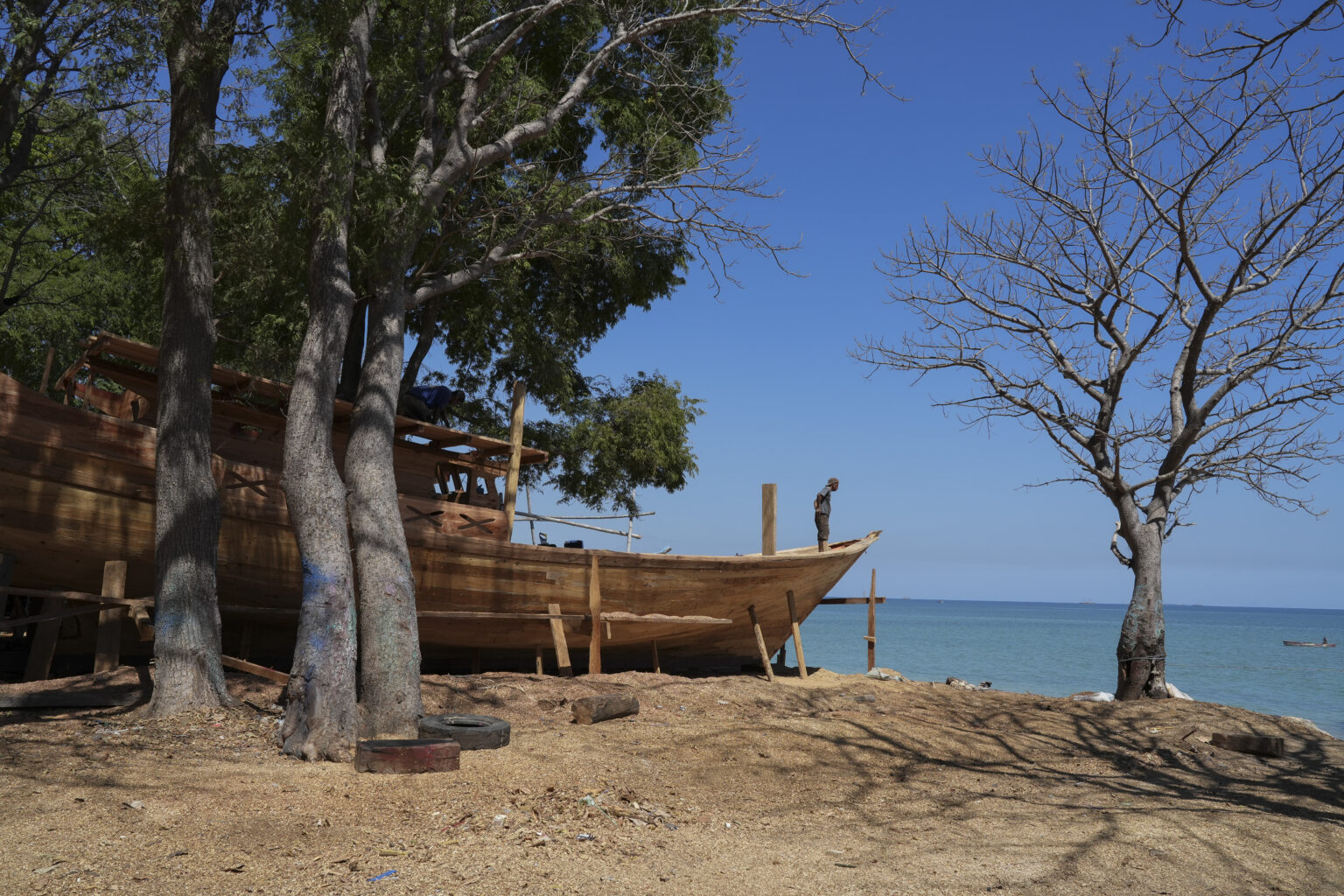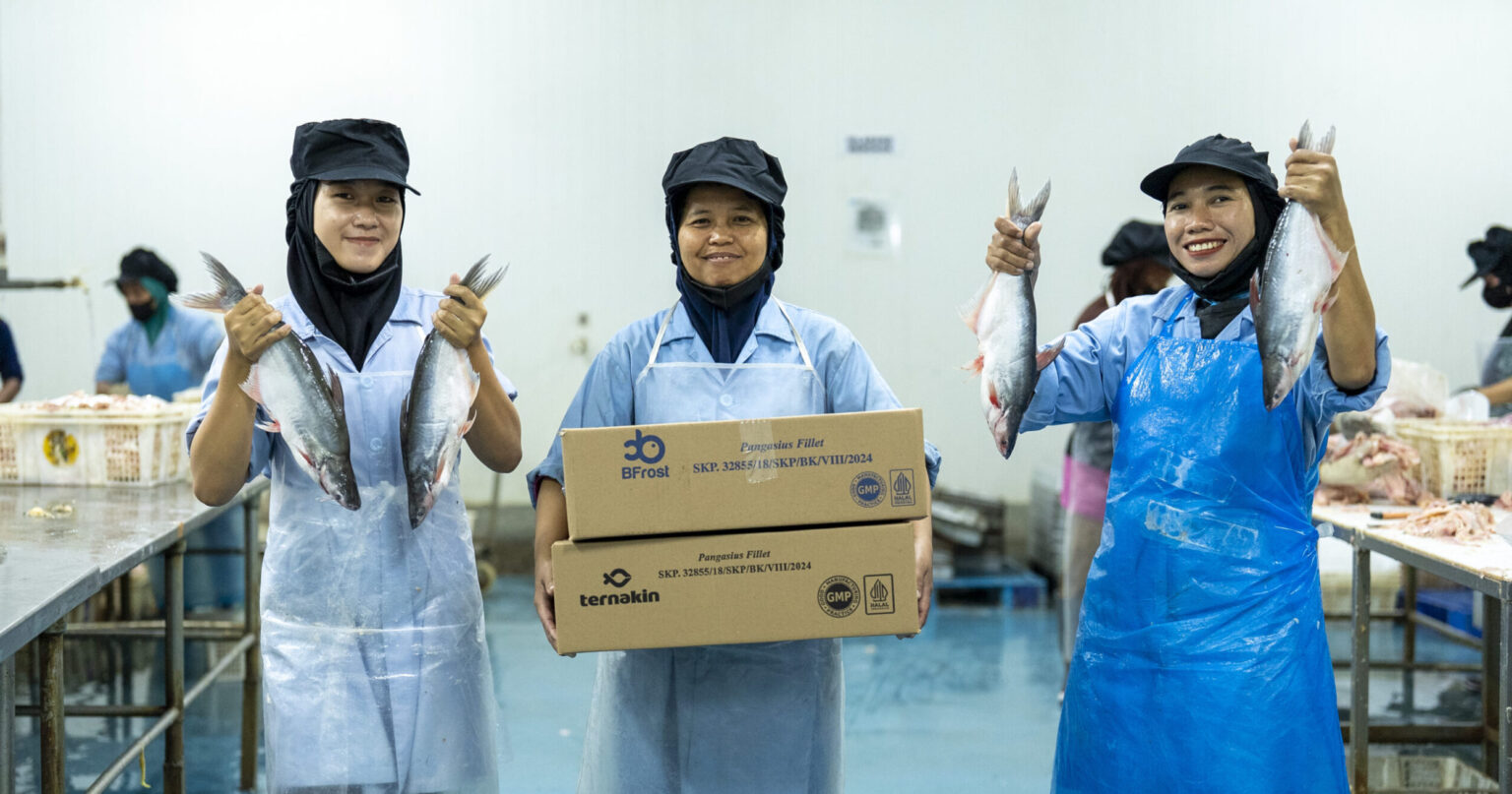
In the small village of Laindeha in East Sumba, Mama Konga beams as she recharges her mobile phone using a PowerWell, a solar-powered unit which brings clean electricity to off-grid homes.
Many villages in Sumba, an island in eastern Indonesia, still lack reliable electricity, particularly in remote inland areas.
Before PowerWells came to Laindeha in 2021, villagers had to recharge their phones by wiring them to used motorcycle batteries or leave them at the homes of friends with diesel-powered generators.
Children studied by the flickering light of smoky kerosene lamps and women had to stop weaving when it got dark.
The PowerWells, which are made from electronic waste such as old batteries and discarded TV screens, are distributed by Sumba Solusi Alam, a renewable energy social enterprise founded in 2019.
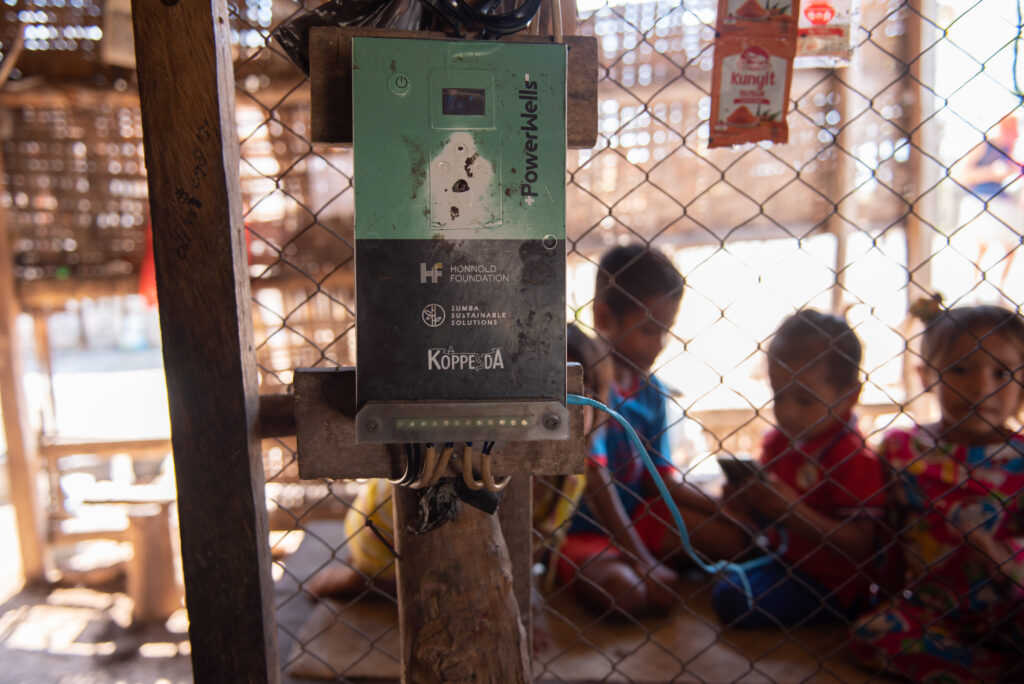
Sumba Solusi Alam is one of 15 startups selected to be part of the KINETIK NEX Entrepreneurs’ Program, which supports small and medium-sized enterprises (SMEs) working on clean energy and climate solutions across Indonesia.
The program has a focus on women-led startups and those based in eastern Indonesia, which is less economically developed than western Indonesia.
KINETIK NEX is delivered by New Energy Nexus Indonesia – a non-profit organisation that supports clean energy startups – and KINETIK, the Australia–Indonesia Partnership for Climate, Renewable Energy and Infrastructure.
It will provide startups with eight weeks of tailored mentoring, technical support and access to investors.
Five of the startups will be awarded a share of IDR 1.6 billion in funding for their projects.
Sumba Solusi Alam hopes its participation in the KINETIK NEX Entrepreneurs’ Program will help it to distribute PowerWells to more villages in Sumba that are still dependent on kerosene.
Each PowerWell contains a solar panel, battery, lighting and a mobile device charging port. Villagers pay in instalments over three years to make them more affordable, with monthly payments of IDR 60,000 (about USD 4).
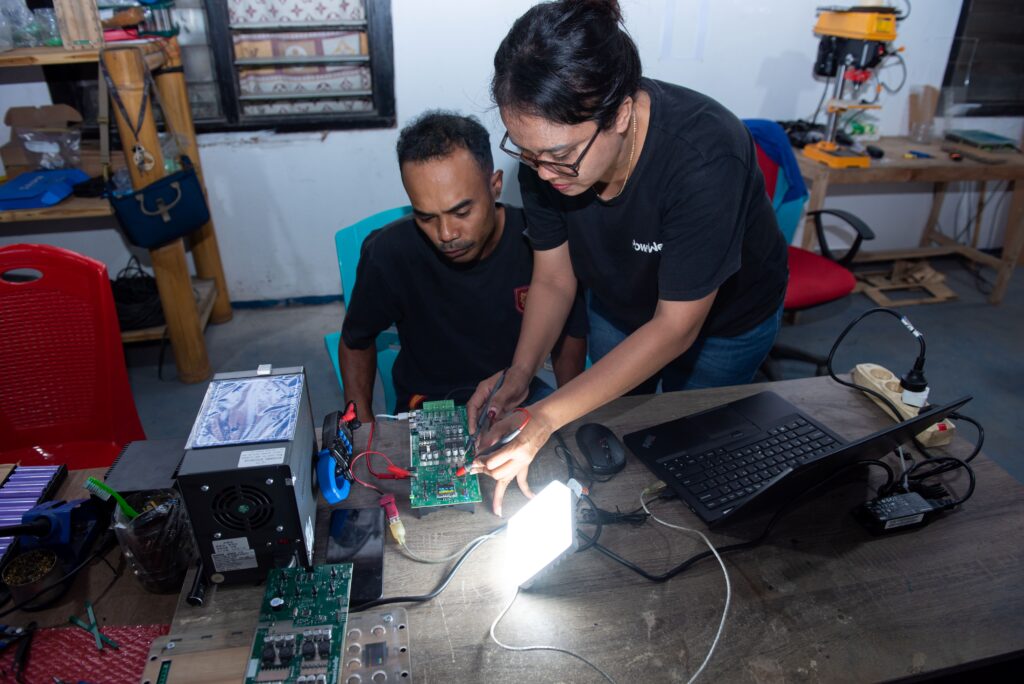
Jetty Alenda Maro from Sumba Solusi Alam trains staff to make PowerWells. Photo: YAN PITHER UMBU MAKI PAWOLUNG
“With PowerWells lighting women can weave at night and produce two sarongs in seven days, compared to only one sarong previously,” said Jetty Alenda Maro, the coordinator for renewable energy at Sumba Solusi Alam.
“Village kiosks can now stay open until midnight, instead of only until 7 pm, increasing their income.”
Ms Jetty said children can now study longer without the fumes from kerosene lamps and mothers no longer struggle with flashlights or wiring up a light bulb when caring for babies at night.
PowerWells are also installed at the health clinic, so patients giving birth at night or involved in accidents can be treated.
KINETIK, which is implemented by DT Global, aims to deepen bilateral cooperation between Australia and Indonesia to reduce emissions and accelerate the just energy transition.
Indonesia has committed to reaching net-zero emissions by 2060 or sooner.
The vast archipelago nation has abundant solar, wind, geothermal and bioenergy resources stretching from Sabang to Merauke. However, around 80% of the country’s electricity is still generated from fossil fuels.
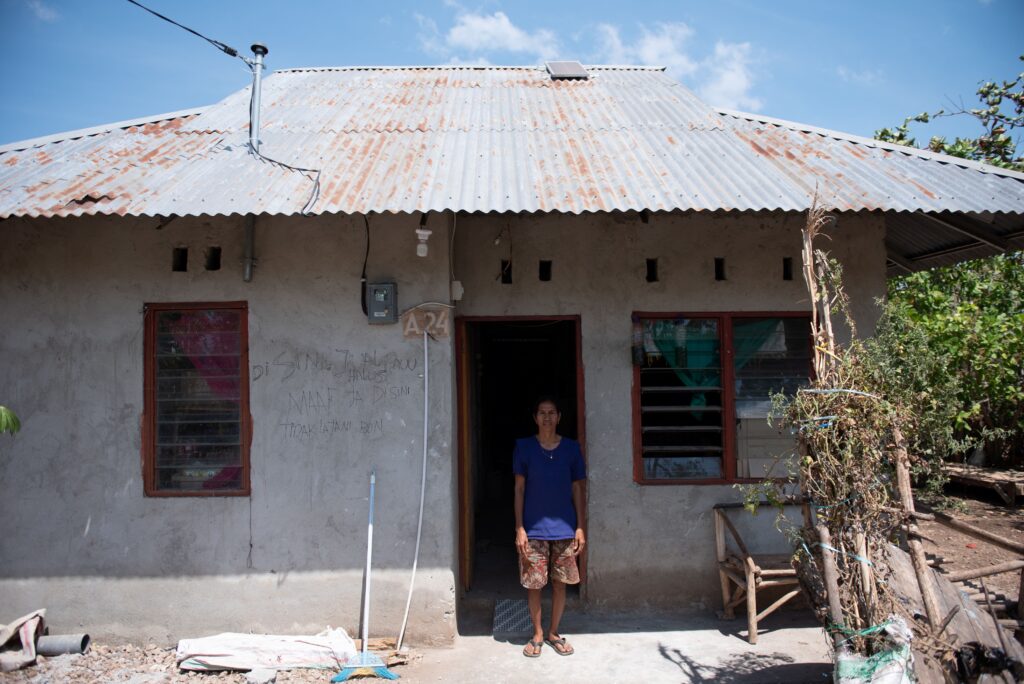
Mama Konga outside a house in Laindeha in East Sumba. Photo: YAN PITHER UMBU MAKI PAWOLUNG
By providing support to early-stage startups, KINETIK helps generate and scale local innovations that can reduce emissions in sectors such as energy, waste and transport.
The 15 startups in the KINETIK NEX Entrepreneurs’ Program are working on projects including windows that turn sunlight into electricity, an electric motorbike taxi service designed for people with disabilities and the conversion of coffee and patchouli waste into organic fertiliser using solar energy.
These enterprises create green jobs and new market opportunities that contribute to Indonesia’s economic growth and transition to clean energy.
KINETIK Director John Brownlee said KINETIK was committed to supporting climate solutions tailored to the needs of local communities.
“When we see women like Mama Konga able to recharge her phone and light her home with clean energy in East Sumba, it reminds us why programs like KINETIK NEX are important,” he said.
“Through the KINETIK NEX Entrepreneurs’ Program we are contributing to an inclusive energy transition, not just in major cities but also in off-grid areas where clean energy can change lives.”

